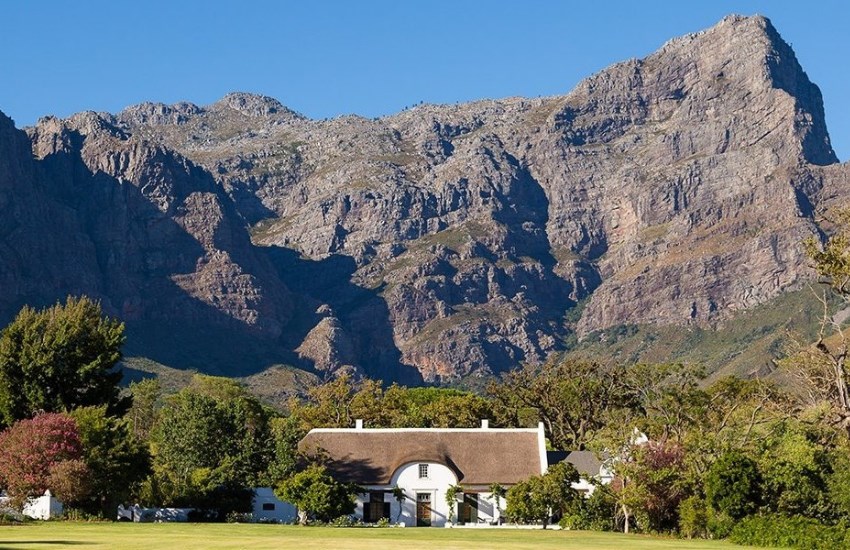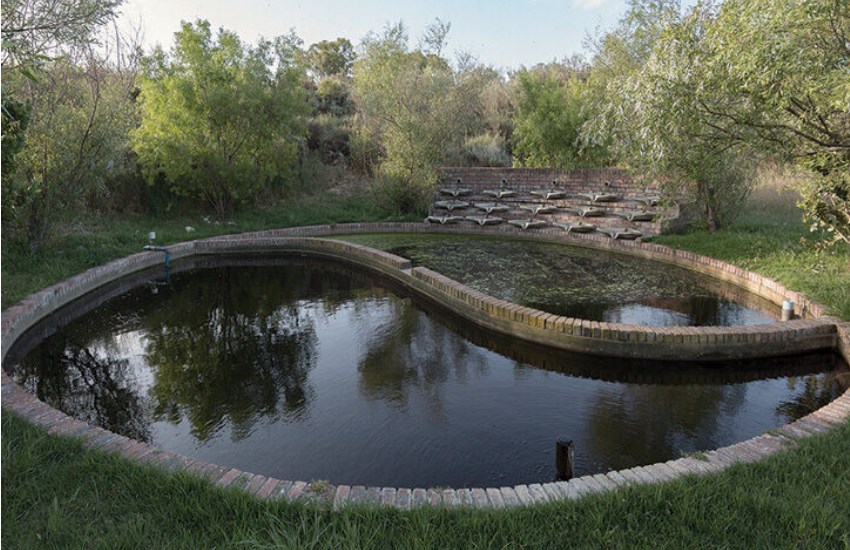National Water Week is an annual event that focuses on the importance of water, one of South Africa’s most limited resources. This year's campaign is aimed at educating the public about their responsibility in water conservation initiatives, raising awareness around the need to protect and conserve water.
At wine.co.za, we are participating in the 2022 National Water Week by sharing stories around an environmental conservation initiative that is close to our hearts: WWF South Africa's Conservation Champions programme.
Through a voluntary membership model, Worldwide Fund for Nature (WWF) works with the environmental leaders in the South African wine industry, known as the Conservation Champions. They provide advisory support to eligible and committed wine farms as part of a biodiversity and water stewardship programme and offers recognition to those who are committed to farming with nature, and not against it.
Currently, there are more than 50 wine farms that form part of this incredible programme.
One of the Conservation Champions pillars is water stewardship. All members contribute to water conservation in some way; through water-saving strategies, responsible water management, water recycling, etc.
However, in this article we'll be looking at three examples of Conservation Champions who stand out as water stewards: Anthonji Rupert Wyne, Nederburg Wines, and Spier.
Anthonji Rupert Wyne
L'Ormarins, Anthonji Rupert Wyne's estate in Franschhoek, manages over 300 ha of its land as a pristine nature reserve encompassing sandstone cliffs, riparian forests, and fynbos.

Over 300 ha of Anthonji Rupert's land is a pristine nature reserve.
What's more, they also manage the water systems on the estate with meticulous care and ultimate stewardship. These water systems includes a beautiful seasonal waterfall as well as pristine streams and flood plains. Here, you’ll find a thriving habitat, not only for red-listed species such as the Cape violet but also mammals such as leopards, Cape foxes, caracals, honey badgers, and porcupines.
The estate’s operational processes to save water include staff awareness training and water-wise biological farming practices.
Nederburg
Nederburg in Paarl has been employing far-reaching water stewardship measures for years, amounting to water savings of up to 40%. They follow a water management strategy based on the principles set out by the internationally recognised Alliance for Water Stewardship.
A few measures they've put into place to improve their water management strategy include:
- Planting cover crops in and among the vineyards
- Wider application of drought-resistant rootstocks
- Water-stress deficit irrigation on a larger scale
- Measuring leaf water respiration using pressure bombs
- Moving towards night irrigation
- Introducing several climate-resilient Mediterranean varietals
In the cellar, they use recycled water for the cooling tanks and rigorously follow water-wise cleaning regimes to eliminate water wastage. They also use harvested rainwater to irrigate their extensive gardens.
Spier
At Spier Wine Farm in Stellenbosch, they recycle 100% of their wastewater using a centralised wastewater treatment plant. The environmentally-friendly plant has the capacity to process up to 1 million litres at any given time, and the clean water is then reused.
The innovative wastewater treatment plant cleans and re-energises their grey-and black wastewater. After initial treatment through an activated-sludge process and a bioreactor, the water passes through a reed bed and into a ying-yang shaped pond where it is driven through a number of ‘flow forms’ before being transported to a nearby irrigation dam. The clean water is then used for flushing in the washrooms and to irrigate gardens and lawns on the property.

The centralised wastewater treatment plant at Spier, which is used for water recycling.
Furthermore, they’ve also incorporated water-saving devices in their hotel, restaurants and other public spaces. They also water all vineyards on the farm with drip irrigation to prevent wastage.
To learn more about this initiative, click HERE visit our dedicated WWF Conservation Champions spotlight page.